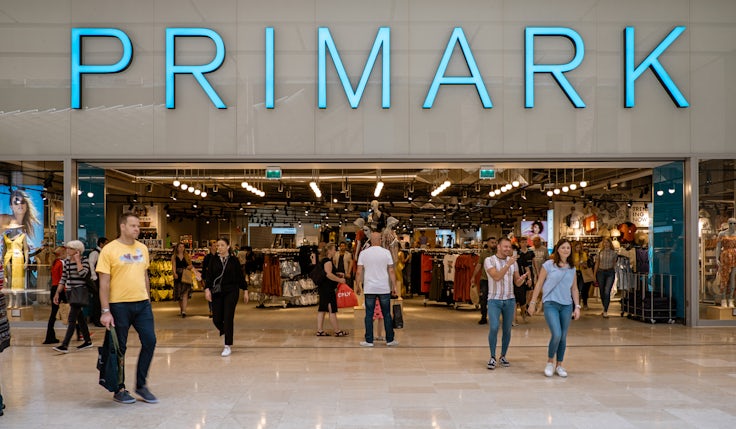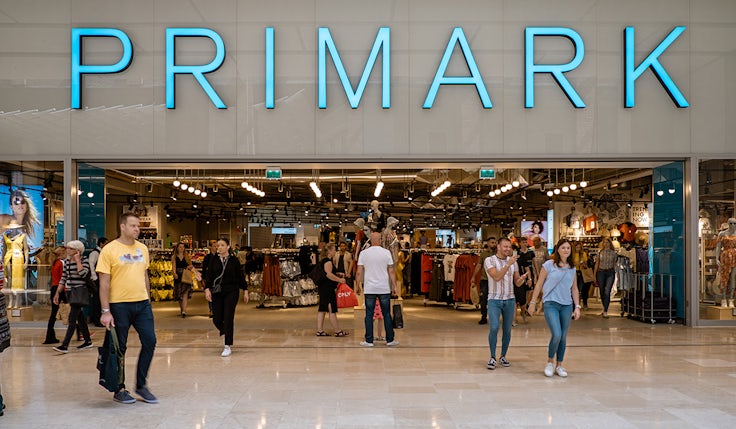Primark expands click-and-collect trial as footfall rises
Primark says it has increased market share, despite having made price increases in the face of inflation.
 Primark is expanding its click-and-collect service into an additional 32 stores, after the initial trial showed “encouraging” signs of driving higher than expected basket sizes, with fewer items being returned.
Primark is expanding its click-and-collect service into an additional 32 stores, after the initial trial showed “encouraging” signs of driving higher than expected basket sizes, with fewer items being returned.
The trial was initially introduced into 25 stores in the North West, with customers being able to order childrenswear online and then pick up in-store. This trial will now be extended into stores within the M25.
CEO of Primark parent company Associated British Foods, George Weston, told investors today (25 April) the fact the initiative is driving bigger basket sizes is leading to higher value sales.
It is not yet clear whether the trial is bringing more people to stores because although there has been “good footfall” in the stores where the trial has been rolled out, footfall has generally been higher than expected across stores in the period anyway. Weston said “disentangling [the impact of click-and-collect] is quite frankly impossible”.
This is another reason why the retailer is expanding the trial to more stores, he said, as it doesn’t currently have a “big enough data set to really dig into the margins”.
Other digital developments are helping to drive footfall to stores, though. Primark rolled out what Weston describes as a “much improved” website in the UK, Republic of Ireland, Germany and Spain over the period.
This includes the introduction of function that allows shoppers to check if an item is in a particular store, before they visit. Around 20% of shoppers are now using this function, he said, suggesting this is a “really good” figure.
Overall, website traffic is up 61% compared to before the roll out of the new site.
We had feared that by moving our prices up, we would lose some of our shoppers who are going to be cash squeezed, that really didn’t happen.
George Weston, Associated British Foods
The company said it is “delighted” with the stronger footfall it has seen over the past six months. In the UK, shopper footfall was “significantly better” in city stores, as tourists and office workers have returned.
Strong footfall drove a 15% sales increase in the UK in the 24 weeks ended 4 March 2023, compared to the same period last year. Revenues for the whole ABF business, which includes its sugar, grocery and agriculture brands in addition to Primark, were up 21% to £9.56bn.
Primark has performed “significantly better” than the business had forecast back in September 2022. While it has had to make price increases due to inflationary pressures, the impact of this has been minimal, Weston reported.
“We had feared that by moving our prices up, we would lose some of our shoppers who are going to be cash squeezed; that really didn’t happen,” he said. “We’ve seen a little bit of a reduction in units per transaction, but not all that much.”
Indeed, the company cited market share data suggesting Primark’s share of the value market has increased to 6.5% in the 12 weeks to 5 March 2023, compared to 6.2% in 2022.
The brand has successfully acquired customers who are looking to save money through its value proposition, Weston said.
“We have done a very good job of attracting customers who would previously have shopped in some of the high-street stores that went bust during Covid,” he added.
Digital engagement is one area driving customer acquisition, he said. As well as the stock-check and click-and-collect initiatives, the CEO cited the company’s success on TikTok, which he said is now “the major channel” for the brand.
While Primark does have its own profiles on the channel, customers produce most of the content about the brand on the platform. Weston referred to this as “a lovely business model” and showed investors a video a user had created displaying Primark’s unitard product, which had garnered around half a million views on TikTok.





